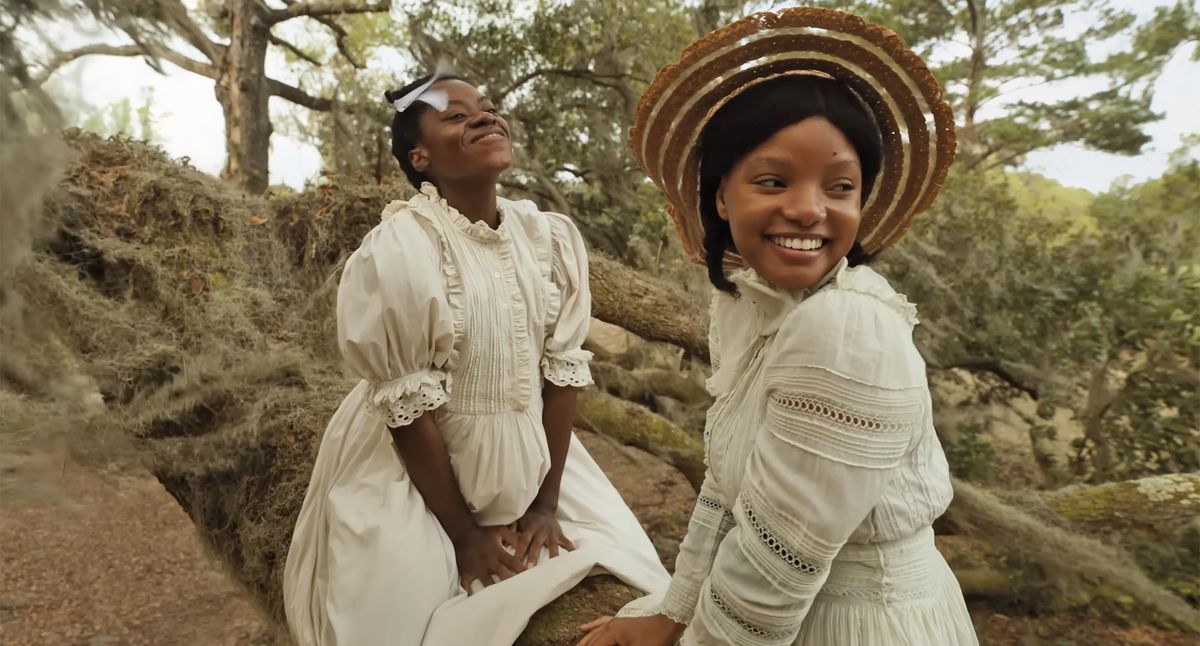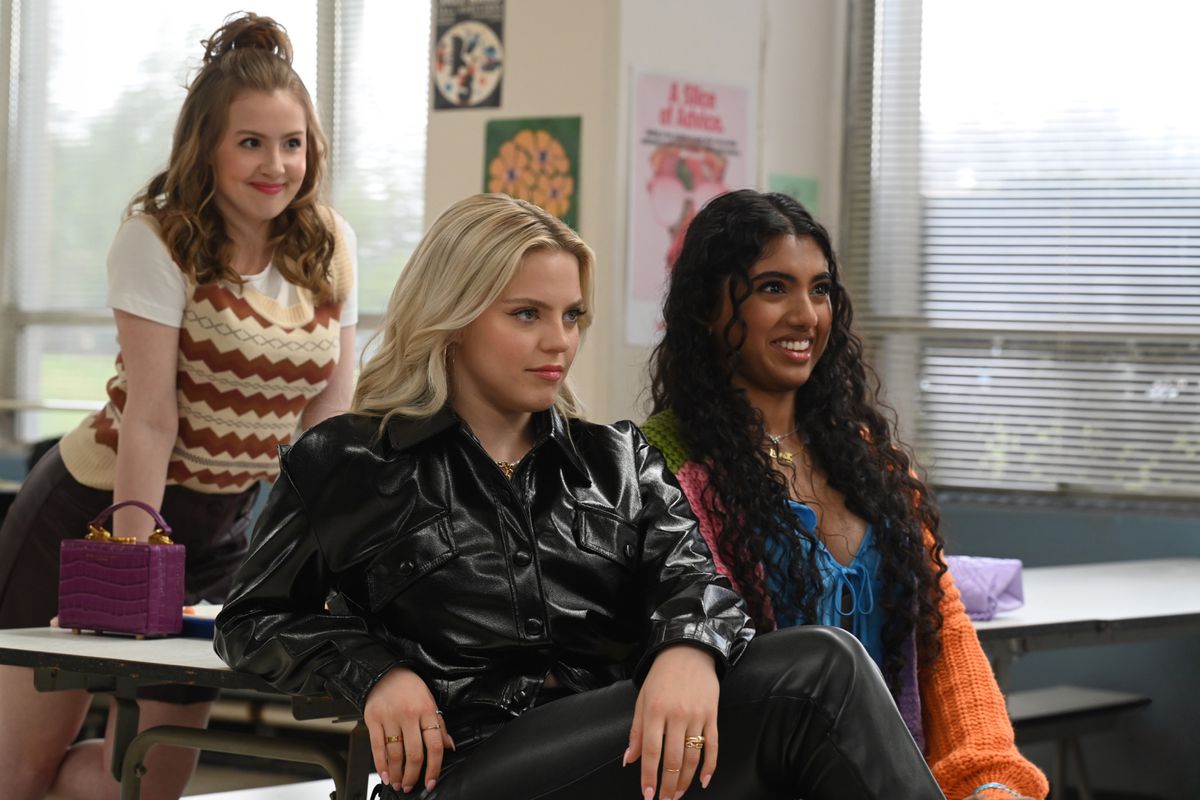 Technology
Technology  Mean Girls and The Color Purple: Do movies that become musicals work as movie musicals?
Mean Girls and The Color Purple: Do movies that become musicals work as movie musicals? January 12, 2024:
For a long while, it seemed as though the Broadway-to-Hollywood pipeline, with a few exceptions, flowed one way. A musical would debut on the stage and then eventually make its way to film. It’s what happened with the Rodgers and Hammerstein classics of the mid-century like Carousel and South Pacific and eventually Best Picture winner The Sound of Music. My Fair Lady ditched Julie Andrews for Audrey Hepburn and won the Oscar in 1965. Bob Fosse reimagined Cabaret for the cinema in 1972, and his version with Liza Minnelli became in many ways the definitive interpretation of Kander and Ebb’s show, also winning the Academy Award.
But the movie musical waned in popularity and the pipeline started flowing in the other direction. Broadway became overloaded with musicals based on movies: Legally Blonde and Groundhog Day, Grey Gardens and Mrs. Doubtfire, Kinky Boots and The Full Monty. It almost felt like an epidemic for theater fans. Regardless of the quality — and they varied widely in quality — the musicals based on movies had the sheen of desperation. Please come to the theater, they seemed to shout, it’s just like that thing you like but with songs.
And thus begets another phenomenon: the movie musical based on a musical based on a movie. It happened with Mel Brooks’s 1967 The Producers, which was turned into a beloved Tony-winning musical and then a panned 2005 movie musical. Now, however, we have gotten two of these in rapid succession: The Color Purple, which hit theaters on Christmas, and Tina Fey’s Mean Girls, which debuts on January 12. Confusingly, both of these films are titled the same as their cinematic predecessors, but make no mistake, they are packed with singing and dancing.
On paper, The Color Purple and Mean Girls couldn’t be more different, regardless of their Broadway roots. One, based on the Alice Walker novel, is the story of Celie (Fantasia Barrino-Taylor in the 2024 film), a Black woman at the turn of the 20th century in Georgia who suffers abuse at the hands of her father and husband, but over decades comes into her own. The other is about a nasty clique at a high school in Illinois. (Do I really need to explain the plot of Mean Girls to you?) But coming out so close together, they show the limits of transferring stories between mediums.
You can make the argument that the musical version of The Color Purple — with a book by Marsha Norman and songs by Brenda Russell, Allee Willis, and Stephen Bray — is less an adaptation of Steven Spielberg’s 1985 movie version than an adaptation of the original text by Walker, but that’s something of a stretch as they are deeply indebted to one another.
There was a direct throughline between the first film and the show. The Broadway production was produced by Quincy Jones, who produced and scored the Spielberg iteration, and Oprah Winfrey, who starred in the original film as Sofia, now played by Danielle Brooks. Now, Spielberg’s Amblin Entertainment produces the movie musical along with Winfrey and Jones. Winfrey explained at the premiere that the latest incarnation only went ahead with Spielberg’s blessing: “This film couldn’t have happened without the original, and couldn’t have happened without Steven Spielberg allowing it to happen.”
Indeed, in reviewing the first Broadway production, the New York Times’s Ben Brantley wrote that it “does bring to mind the enjoyably hokey cinematic ravishments of Steven Spielberg’s 1985 film version.”
I never saw that production, which was met with tepid response, but I did see the acclaimed one that followed in 2015, which toned down the spectacle for a stripped-down aesthetic that relied largely on a towering performance from Cynthia Erivo as Celie. The nearly bare stage allowed Erivo’s raw emotion and astounding voice to fill the room. With few other distractions, you could focus on how she transformed herself as Celie’s understanding of herself developed.

For the screen, director Blitz Bazawule goes in the opposite direction. Instead of taking cues from the small scale of the Erivo version, Bazawule, whose credits include Beyoncé’s Black Is King, goes all out for what almost amounts to a brightly colored musical extravaganza. Nearly every song is accompanied by a chorus of dancers in exuberant costumes doing elaborate choreography.
Some of these choices work better than others. The opening sequence “Mysterious Ways” is a blast of joyous gospel energy. The riotous juke joint performance by torch singer Shug Avery (Taraji P. Henson) is galvanizing. However, I was frustrated to find that “What About Love?” — Celie’s love ballad with Shug — takes place in the world of a vintage movie musical. Specifically, according to a recent story in the New York Times, Stormy Weather starring Lena Horne from 1943. It’s sumptuous, but you can argue it also does a disservice to the love story the song is telling. It made their romantic connection somehow feel less tangible, more the stuff of fantasy.
But that’s the ultimate pitfall of taking things from the stage to the screen. On the stage, the heightened experience of watching someone belt with all their might can enhance a story’s power. Hearing the sounds of voices live can be shatteringly effective. You can hear the pain or elation in the vibrato. On screen, if staged ineffectively, the singing can make the moments feel somehow less true. It’s unnatural for people to break into song and you have to find the right balance to make it feel transcendent. This is why the likes of Cabaret and 2002’s Chicago remove the songs from the diegetic action of the movie, instead letting them live in a sort of theatrical limbo.
The movie-to-musical-to-movie-musical path makes achieving that extra difficult. We’ve seen successful versions of both: How do you meld them together?
While there is some evocation of Spielberg’s 1985 film in The Color Purple, it’s indisputable that Bazawule is trying to honor what it means to be a big-screen musical in his ambitious if at times overwrought staging. Not that the trailer advertised that.
The trailers for both The Color Purple and Mean Girls hide the fact that they are musicals. The only clue you would have that something is up with Mean Girls is a musical note in the logo. But, make no mistake, Mean Girls is a musical. So much so that I think some audiences are going to be shocked when it opens with outcasts Janis (Auliʻi Cravalho) and Damian (Jaquel Spivey), framed in a smartphone screen, singing about what’s to come.
Mean Girls was met on Broadway with a solid if not overwhelming reception, with critics largely highlighting the humor over the songs from composer Jeff Richmond (Fey’s husband) and lyricist Nell Benjamin. The stage production updated some of the material but for the most part wanted to hit the same beats to appease the audience.

Would that mean, in movie form, the musical would just read as an unnecessary remake of the still-beloved original? The trailer made it seem that way. Weirdly, though, the musical numbers bloom on screen in this version directed by Samantha Jayne and Arturo Perez Jr in a way they couldn’t on stage. In the original production, which I saw, Mean Girls: The Musical sometimes felt like a bootleg, cobbled-together version of the 2004 film. So why is that?
To again say something extremely obvious, unlike The Color Purple, no version of Mean Girls has hewed that close to reality, what with the original’s fantasy sequences of teens acting like animals in the mall as if it were their watering hole. The silliness allows the directors to take more goofy risks with the musical sequences, and it makes sense that these songs would exist in the minds of these hormonal, scheming kids.
Yes, Mean Girls has some points to make about high school, but it’s all in service of the jokes, which means the movie musical format actually fits it shockingly well. On stage, you can’t land a visual gag the way you can in a movie, which means, if there was ever going to be a Mean Girls musical, perhaps the screen was the best option. Sure, there are some added jokes, but the musical aspect is what makes it feel fresh and what gives the great new cast something to make their own.
And yet the transferring of the material still feels a little, well, exhausting. After all, Fey’s 30 Rock once had a joke about a character winning best actress “in a movie based on a musical based on a movie.” It’s a mouthful just saying it.